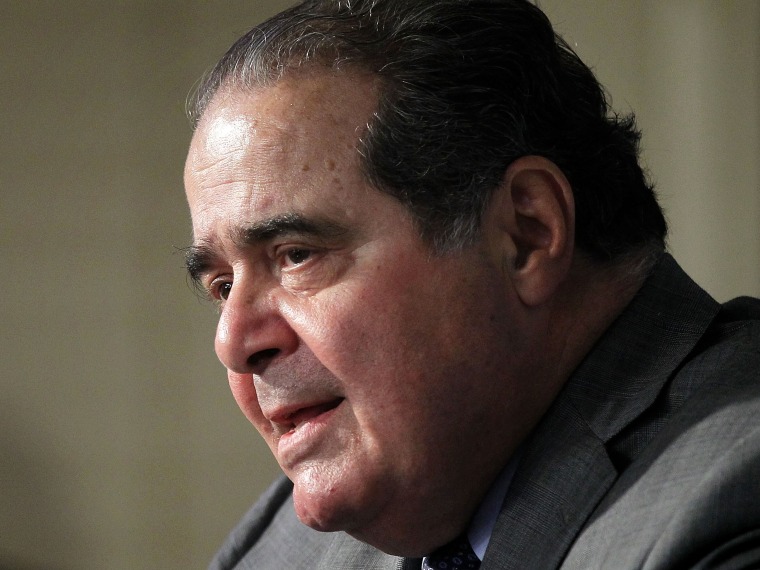Supreme Court Justice Antonin Scalia took the stage at Southern Methodist University Monday night and argued the Constitution is "not a living document" and is "dead, dead, dead."
Justice Scalia discussed how children would visit the Supreme Court and refer to the Constitution as a "living document" but that the Constitution is, in fact, "dead." A staunch conservative and "textualist," Scalia believes the law must be taken literally and that the original meaning of the Constitution is the best way to interpret it.
While giving a lecture with SMU law professor Bryan Garner, Justice Scalia also stated that his legal decisions do not always align with his political views. "The judge who always likes the results he reaches is a bad judge," Scalia told the audience.
Professor Garner admitted that he and Scalia differ politically but that remaining committed to the meaning of the law and setting aside politics must be done for legal interpretation. The two wrote their second book together titled Reading Law: The Interpretation of Legal Text.
In favor of gay marriage and stricter gun control laws, Garner said, "“I will tell you that my political beliefs are different from those of Justice Scalia.”
Justice Scalia, who was appointed by President Reagan, is known as one of the most conservative judges sitting on the bench and told the crowd in Dallas that he has not "expressed [his] views of either of those."
In December of 2012, a gay Princeton student challenged Justice Scalia on his legal writings on homosexuality. The student asked Scalia to defend his legal comparison of the bans on sodomy to those on bestiality, murder and incest. “If we cannot have moral feelings against or objections to homosexuality, can we have it against anything?” Scalia said in response.
Scalia clarified that he was not equating sodomy with bestiality or murder, but was presenting parallels between the two bans.
The Supreme Court Justice also stated similar comments regarding the Constitution during his visit to Princeton University. “The Constitution is not an organism; it’s a legal text, for Pete’s sake,” he said. “Unless you give [the laws] the meaning of those who enacted them, you’re destroying democracy.”
The Supreme Court will hear arguments in two landmark cases involving marriage equality in March, specifically the legal challenges to the federal Defense of Marriage and to California’s Proposition 8, a voter-passed measure which banned gay marriage in America’s largest state.
